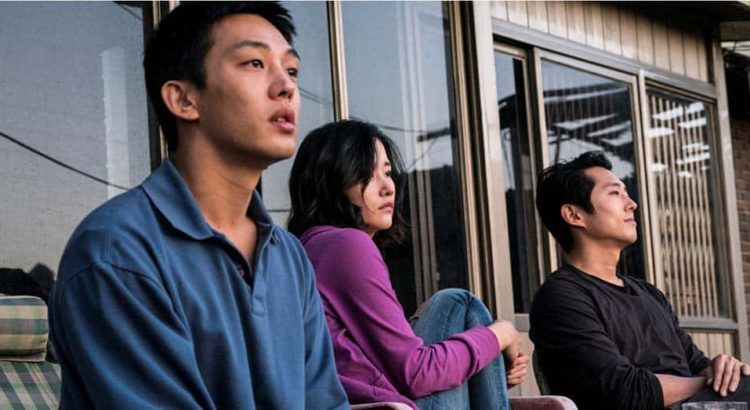Most of the movies that I watch are sharply split between the hero and the villain. Bad movies, to me, are ones that shovel viewers to one side. You have no choice but to support the hero against a one-dimensional, mustache-twirling bad guy. Good movies allow me to understand the villain, even sympathize with their cause, before ultimately siding with the hero. But the great ones mess with that divide instead. These films make picking sides difficult. These films make things complicated. I have watched a lot of good, a couple of bad, and only one great movie in 2018. I squirmed through, was hypnotized by, and ultimately loved Burning.
The protagonist of the film is Jong-su (Ah-in Yoo). Recently graduated from college, he moves not with nervous excitement of a newly independent adult, but with a blank-faced neutrality. After all, there is little to be passionate about. He works small, insignificant jobs around the city while he chips away at a novel. He dreams of being a novelist, he is stuck being a laborer. He seems to tread into each scene, carefully evaluating each situation, revealing little. The movie, too, is reluctant to show too much at once. Each detail is another pop of color on an expanding portrait. It is not, perhaps, until the very end when Jong-su becomes fully realized. And that moment of realization, is absolutely stunning.
But, of course, before that finale, there is an entire film of radiating unease. When Jong-su reunites with his childhood friend, Hae-mi (Jong-seo Jun), he is instantly enamored. But like much of the rest of the film, their relationship feels a little unmoored from reality. At first, Jong-su does not even recognize her face. She claims its plastic surgery. Secretly, you wonder if there is something she is hiding under her brilliant smile. There are constantly pieces missing, each adding to the waves of unrest. As much as the film reveals, it also keeps certain elements unknown. Carefully it teeters, yet it remains perfectly balanced.
After their first dinner together, Hae-mi asks Jong-su to look after her cat while she embarks on a trip to Africa. He agrees, showing up everyday to refill the emptying bowls of food and water. Mysteriously, he never sees the cat. Equally, he yearns for her return and the gleaming towers that he can glimpse from her apartment window. But when she returns, Hae-mi is already in a relationship with one of her fellow travelers, Ben (Steven Yuen). Ben has everything, and it bores him. Jong-su bristles at his nonchalance, for his beautiful apartment, for his fast car, even for Hae-mi’s earnestness. And it is easy to take Jong-su’s view. Ben’s riches seem unearned, his fortune unappreciated. Instinctively, we side with the underdog. That is what I find most brilliant about the film. It makes you question your own biases and preconceptions.
Burning is reflexively thrilling. You can’t help but search for clues in the spare Korean landscape, in the guarded eyes of Jong-su, Ben, and Hae-mi. Which is the hero? Which is the villain? Where is the cat? That is only for you to determine.


